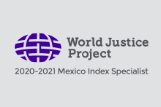














The COVID-19 pandemic is affecting the entire world and businesses need to understand its different effects.
In order to contain the spread and mitigate the risk of Covid-19, on March 27, 2020 the Mx Health Authorities ordered quarantine and suspension of certain activities and businesses which may represent a health risk.
On March 30 the Mx Federal Government issued a health emergency declaration due to force majeure resulting from COVID-19, instructing all business (except for essential activities) to shut down; however, terms are ambiguous and there has been lots of confusion on whether this action could be considered as a “contingency declaration” in terms of Article 42 BIS, 427 Section VII and 429 Section IV of the Labor Law [legal ground allowing the employers to a relief by paying employees only a minimum wage for 30 days].
In our opinion the health emergency declaration is grounded strictly in a force majeure event pursuant to Article 427 Fraction I and not on a “contingency declaration” in terms of Article 42 BIS, 427 Section VII and 429 Section IV of the Labor Law, and therefore in our opinion employers are NOT entitled to relief on their obligations to employees. This means that all employers need to continue paying 100% of the wages to its employees despite of not being able to run operations.
Best course of action at this point is negotiating with employees and unions in order to have them agree to certain adjustments which need to be analyzed on a case by case basis (i.e to take a cut on their current pay, take early vacations, leave without pay, etc, etc).
On March 31, 2020, the Mx Federal Government issued a decree indicating that only businesses performing activities considered as “essential” are able to continue operating. All other businesses are being instructed to shut down operations until April 30, 2020; however, it is estimate that date will be extended until late June 2020.
Measures, however, have a broad an ambiguous explanation of what is considered “essential” and definition includes a last sentence indicating that the following should also be considered as part of the essential activities: “…all other activities whose suspension could have irreversible effects on its continuation…”
This last sentence gave room to interpretation and could be used by companies to argue that if they shut down they probably will not be able to re-open and therefore will have an irreversible effect; however, the federal government issued a new decree on April 6, 2020 clarifying that irreversible effects would need to be in connection to the country and not the company itself, stating that only the following industries could have irreversible effects to the country if they shut down: Companies producing steal, glass, cement and IT companies.
In the past days several global companies with manufacturing facilities in Mx have been receiving letters from their clients located abroad indicating they are “essential suppliers” for US purposes and therefore demanding from them to fulfill purchase orders; however, Mx facilities are shutdown given that per Mx criteria such activities are not “essential”. This is obviously creating tension and adding complexity to cross border transactions.
Generally, default of contractual obligations results in civil liability; however, when unforeseeable events make it impossible to comply with said obligations, such as "force majeure" events, the parties can be exempted from civil liability. In some local laws within Mx, the possibility of bringing an action to seek the termination of contracts or the equitable relief is also possible when unpredictable events of a general nature take place and such events alter the economic situation and the conditions assumed for the performance of obligations (Teoría de la Imprevisión).
Members of Portilla, Ruy-Diaz y Aguilar, S.C. will be pleased assisting you to answer any question or to provide legal assistance.